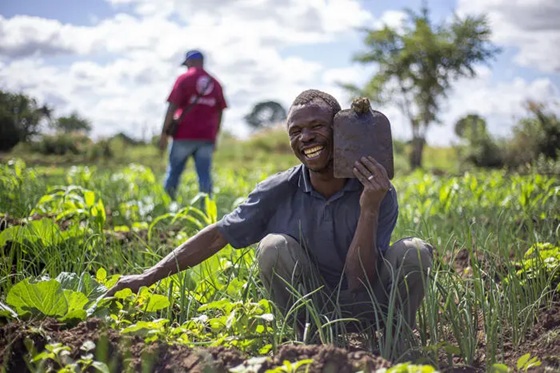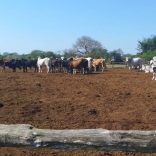Mozambique: Maragra’s two-year-long shutdown could lower sugar output in 2025-26 season – APAMO
FAO: Mozambique transforms smallholders into agripreneurs through Stepwise agribusiness innovation

FILE - For illustration purposes only. [File photo: FAO/Fabio de Sousa]
The Food and Agriculture Organization of the United Nations (FAO), in partnership with the Government of Mozambique and the European Union, is supporting smallholder farmers to transition from subsistence farming to inclusive agribusiness through the PROMOVE Agribiz programme.
Implemented in Nampula and Zambézia provinces, the initiative strengthens rural resilience and food security by equipping farmers with knowledge, financial tools, and market access. The programme’s stepwise model—moving farmers from learning to entrepreneurship—is a scalable innovation that is reshaping Mozambique’s agricultural landscape.
Stepwise innovation: From learning to agribusiness
Smallholder farmers in Mozambique are the backbone of national food production, yet they face persistent challenges such as low productivity, limited access to markets, and scarce business opportunities. PROMOVE Agribiz introduces a transformative model that guides farmers through a structured pathway: beginning with Farmer Field Schools (FFS) to build technical capacity, progressing to Farmer Business Schools (FBS) to develop entrepreneurial skills, and culminating in the formation of agribusiness associations.
This stepwise approach is supported by competitive microgrants, inclusive value chain development, and partnerships with financial institutions and agri-food companies. It is particularly focused on empowering women, ensuring their active participation in all stages of the agribusiness journey.
The innovation lies in how the programme integrates learning, financing, and market access into a single continuum, enabling farmers to evolve from producers to business owners. By combining agricultural extension services with financial empowerment and cooperative formation, PROMOVE Agribiz is creating a new generation of agripreneurs.
Scaling agribusiness and empowering communities
The impact of the initiative is evident in its reach and inclusivity. A total of 413 Farmer Field School groups have been established, engaging 10 742 members—nearly half of whom are women. Additionally, 183 Farmer Business School groups have trained 4 735 members, with women making up 51 percent. The programme has also facilitated the creation of 38 agribusiness associations, involving 1 091 members, 58 percent of whom are women.
These results demonstrate that when farmers are equipped with knowledge and financial capital, they can build sustainable businesses that generate income, access markets, and contribute to rural economic growth. The model has proven effective in attracting private investment and strengthening national food security.
FAO and its partners aim to scale this approach by integrating it into national agricultural strategies, expanding access to finance, and fostering public-private partnerships. PROMOVE Agribiz is not just a project—it is a blueprint for transforming agriculture into a driver of inclusive development and resilience.












Leave a Reply
Be the First to Comment!
You must be logged in to post a comment.
You must be logged in to post a comment.